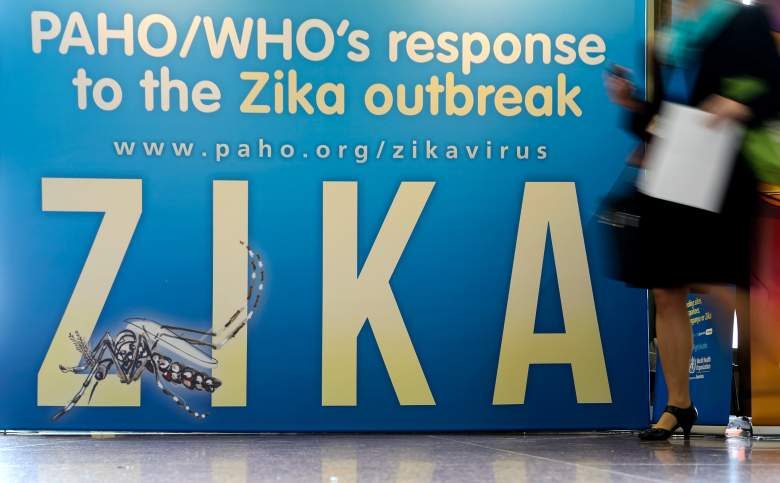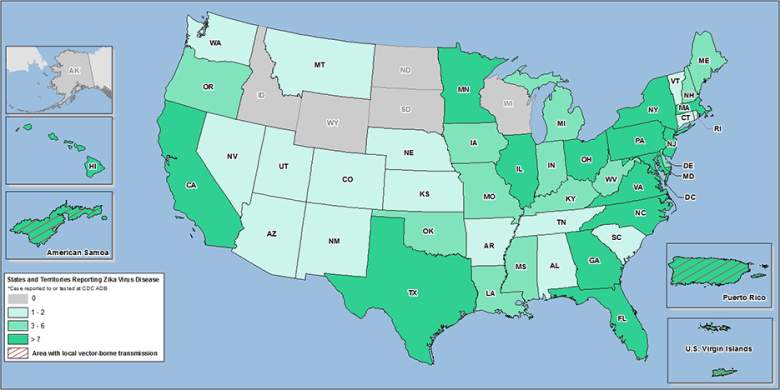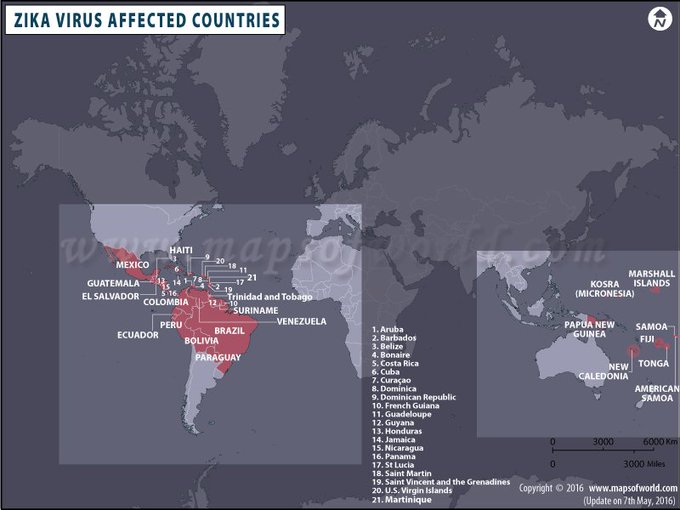
(Getty)
As temperatures rise, Zika virus disease (Zika) is predicted to hit a wide range of previously unaffected areas, including the United States. On May 22, Dr. Anthony Fauci, Director of the National Institute of Allergy and Infectious Diseases, told This Week, “The concern is that we will have local transmission; in other words, people who get infected in the United States, get bitten by a mosquito, but who have never left the continental United States. We fully expect that will happen as we get to the more robust mosquito season in the next month or so.”
The number of pregnant women being monitored after having a suspected case of Zika has almost doubled from 112 to 279, in the U.S. and U.S. territories after officials from the U.S. Centers of Disease Control and Prevention (CDC) made changes to reporting. Recent findings showed pregnant who gave birth to children with birth defects had Zika without symptoms.
The senate voted on May 17 to approve $1.1 billion in emergency funding to fight Zika, while the White House requested $1.1 billion. House Republicans set forth a plan that included only $622 million, reallocated from other programs, reported the New York Times.
Zika Is Spread Through Mosquito Bites & Causes Birth Defects
Zika is primarily spread to people through the bite of an infected Aedes species mosquito. Symptoms of the disease include a fever, rash, joint pain, and conjunctivitis (red eyes). According to the CDC, “The illness is usually mild with symptoms lasting for several days to a week after being bitten by an infected mosquito. People usually don’t get sick enough to go to the hospital, and they very rarely die of Zika.” Many people won’t show any symptoms or make the connection that the symptoms they have are caused by Zika, and therefore won’t know they’re infected.
One of the biggest risks of Zika is the effect it has during pregnancy. When pregnant women become infected, their unborn babies are at risk of a serious birth defect called microcephaly, among other severe fetal brain defects. The CDC website states:
Microcephaly is a condition where a baby’s head is much smaller than expected. During pregnancy, a baby’s head grows because the baby’s brain grows. Microcephaly can occur because a baby’s brain has not developed properly during pregnancy or has stopped growing after birth, which results in a smaller head size. Microcephaly can be an isolated condition, meaning that it can occur with no other major birth defects, or it can occur in combination with other major birth defects.
Zika May Have Been Preventable & No Vaccine Is Available
At the World Healthy Assembly on May 23, Margaret Chan, Director of the World Health Organization (WHO), blamed mosquito control and poor access to family planning as the main culprits of the Zika crisis. Chan said Zika is “the price being paid for a massive policy failure that dropped the ball on mosquito control in the 1970s.” Policies that could’ve kept mosquito populations under control “slumbered” for six decades in Asia and Africa, causing us to “wake up on a new continent to cause a global health emergency.” Chan also noted that sex education and family planning failures have contributed to the “extreme consequences” of the disease.”
There are no vaccines to prevent Zika, nor widely-available or reliable diagnostic tests. “To protect women of child-bearing age, what can we do? We can only offer advice. Avoid mosquito bites. Delay pregnancy. Do not travel to areas with ongoing transmission,” warned Chan.
Most States & U.S. Territories Are Already Affected, & Precautions are Being Taken Worldwide

(CDC)
There are no local reported mosquito-borne cases of Zika in the United States, but there are travel-associated cases, as illustrated in the above map. However, local transmissions been reported in the Commonwealth of Puerto Rico, the U.S. Virgin Islands, and American Samoa,” per the CDC. CDC.org. “With the recent outbreaks, the number of Zika cases among travelers visiting or returning to the United States will likely increase. These imported cases could result in local spread of the virus in some areas of the United States,” reports CDC.org.
For many people worldwide, the outbreak has caused setbacks in travel plans. For women who are pregnant or plan to become pregnant, prevention is key. Since the virus can be transmitted sexually it’s advised that men also take precautions.
The 2016 Rio Olympics Could Be Affected
Rio, Brazil, is set to host the 2016 Olympics and is one of the hardest hit countries of Zika. This presents a problem to prospective Olympians, who don’t want to risk family planning even when it comes to winning the gold. Golf is making its first debut to the Olympics since 1904, but players like Rory McIlroy, who is scheduled to play for Ireland, aren’t making any promises. “I have been reading a lot of reports about Zika and there have been some articles coming out saying that it might be worse than they’re saying and I have to monitor that situation,” McIlroy told the BBC. McIloroy plans on starting a family with his fiance in the next couple of years, and doesn’t want to risk that.
Master’s winner Danny Willet, also scheduled to compete, expressed concern. He told Newsweek, “I’m not a doctor. I don’t know the ins and outs of it, but I’m going to have a sit down with the guys about it this week and we’ll check everything. If it turns out it would be a threat to me, Nic [Willett’s wife] or to little man, I probably wouldn’t go. Family comes first, but, as it stands at the minute, I think everything should be OK.”

